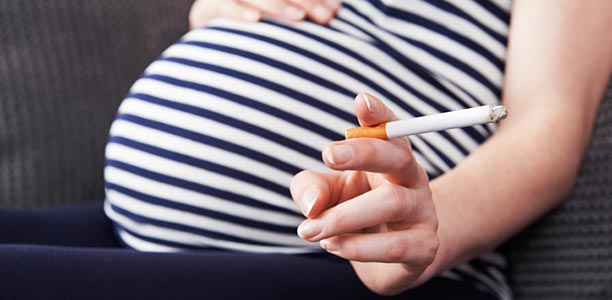Maternal smoking during pregnancy contributes to various long-term health problems in offspring, especially respiratory disorders.
Several human studies have indicated that maternal smoking is associated with lung under-development, airflow limitation, an increase in the risk of respiratory infections and development of airway hypersensitivity and asthma.
Research lead by scientists at the University of Technology Sydney (UTS) has identified oxidative stress as the major mechanism by which developing offspring are harmed when pregnant women smoke.
The research is collaboration between UTS, Chulalongkorn University in Bangkok and the Kolling Institute and Royal North Shore Hospital.
Associate Professor Brian Oliver, an expert in respiratory disease from the UTS Faculty of Science, said it had previously been though that nicotine caused most adverse effects on the health of mothers and babies.
However, a smoker inhales additional toxic chemicals and billions of free radicals [oxidants] which enter the blood stream and affect the whole body.
Associate Professor Oliver said free radicals – for example, molecules such as hydrogen peroxide (H2O2) – are highly reactive and can chemically change body tissues (similar to bleaching). “For pregnant women, the response to these chemicals extends to the developing child,” he said.
The study on the adverse effects of maternal smoking was carried out by UTS PhD students Yik Lung Chan and Razia Zakarya, and Suporn Sukjamnong, visiting from Chulalongkorn University in Bangkok.
The researchers also found maternal smoking during pregnancy may increase the risk of chronic inflammatory conditions in babies’ lungs, making them more susceptible to certain pulmonary disorders such as asthma or chronic obstructive pulmonary disease (COPD) in adulthood, an area that has been identified for further investigation.
The research also has implications for pregnant women who live in polluted areas or use electronic cigarettes, both of which the large team is also investigating.
(Source: University of Technology – Sydney)










